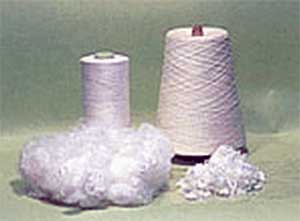Mörrum Upgrade Reinforces Södra's Commitment to Dissolving Pulp
![]() Print this Article | Send to Colleague
Print this Article | Send to Colleague
 Södra Cell, Sweden, is currently investing to increase capacity and improve quality at all three of its mills. Investments at Mörrum, Sweden, where Södra produces dissolving pulp, will have a significant impact on the quality of the mill’s products, and it signifies that Södra is in the dissolving pulp market for the long haul.
Södra Cell, Sweden, is currently investing to increase capacity and improve quality at all three of its mills. Investments at Mörrum, Sweden, where Södra produces dissolving pulp, will have a significant impact on the quality of the mill’s products, and it signifies that Södra is in the dissolving pulp market for the long haul.Södra is investing SEK 700 million (EUR 75 million) at its Mörrum mill in a project that includes a new chip plant and two separate wood room lines for softwood and hardwood. For Textile Pulp (Södra’s branded dissolving pulp), the investment represents an important step forward in efficiency. It will remove the bottleneck of an aging woodyard.
Once the new woodyard is up and running, however, the mill will be able to run the Textile Pulp line to full capacity and use more of its members’ birch wood. The result will be a faster, more efficient line based on birch pulp, which will produce a premium quality pulp for the textile industry.
"We are among the top five producers in terms of quality today," said Dag Benestad who heads up Södra’s Textile Pulp business. "But this investment will be a significant step towards our goal of being among the top three. Overcapacity is currently having a negative effect on dissolving pulp prices and some companies are exiting the market as a result. We are not one of them. With this investment, we hope to show that we are committed to Textile Pulp for the long term."
Work at Mörrum has already begun. The chip plant and wood room lines, supplied by Valmet (Finland), are due to go into operation this December. Overall pulp capacity at Mörrum will increase from 380,000 metric tpy to 425,000 metric tpy of pulp. Of the increase, some 15,000 metric tpy will be textile pulp, bringing capacity to around 150,000 metric tpy. There will also be improvements in quality, working conditions, and the local environment.


